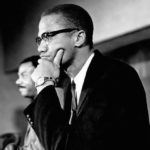By LAURA BURKE
Associated Press
ACCRA, Ghana (AP) _ Preliminary results from Ghana‘s presidential poll indicate a tight race between President John Dramani Mahama and opposition leader Nana Akufo-Addo.
Results published Sunday by Ghana‘s electoral body show Akufo-Addo in the lead by about 2 percent, but only 117 out of 275 constituencies had been officially reported by noon on Sunday.
People in Ghana‘s capital have been glued to their radios since Friday night as local media announce results from polling stations. One private radio station has already predicted a win for Mahama, and people have celebrated in the streets, but official results could be days away.
International observers endorsed Ghana‘s presidential and parliamentary elections despite delays at polling stations that pushed voting into a second day Saturday.
“All of Africa was looking at Ghana to make sure that they live up to their reputation and their name of being a mature democracy,” said Ahmed Issak Hassan, head of an observer mission from the South Africa-based Electoral Institute for Sustainable Democracy in Africa. “I think so far the people of Ghana, the political leadership have lived up to that expectation,” said Hassan on Saturday.
“The people of Ghana and the leadership need to be commended,” he said in a preliminary assessment of the election. Hassan is also the chairman of Kenya‘s electoral commission.
On Friday ballot materials arrived hours late to polling stations and many of the biometric voter verification machines broke down, causing long delays.
Electoral chairman Kwadwo Afari-Gyan said no incidents of fraud or violence have been confirmed. Yet rumors of misconduct have been rife.
Police fired water cannons and tear gas on hundreds of opposition party supporters Saturday who were protesting outside a building in northern Accra where they suspected ballots from the presidential and parliamentary election were being counted by a private company.
“They had some young supporters of political parties demanding to know what was going on in a particular house,” said Ghana police spokesman Arthur Cephas. “Police came in to restore order. We brought all our management to get youth off the facility, to calm them down.”
An AP reporter at the scene heard warning shots fired by police at the crowd.
Cephas said no one was arrested and there were no injuries.
The accusations of improper vote counting were unfounded, said electoral commission spokesman Christian Owusu-Parry. “The electoral commission receives the results directly from the polling stations. The ballot boxes go from the regional offices to the headquarters; there are no intermediaries,” said Owusu-Parry.
This nation of 25 million is deeply attached to its tradition of democracy, and voters were urging each other to remain calm while they waited their turn to choose from one of eight presidential contenders.
Ghana was once a troubled nation that suffered five coups and decades of stagnation, before turning a corner in the 1990s. It is now a pacesetter for the continent’s efforts to become democratic. No other West African country has had so many elections deemed free and fair, a reputation that voters hold close to their hearts.
The incumbent Mahama, a former vice president, was catapulted into office in July after the unexpected death of President John Atta Mills. Before becoming vice president in 2009, the 54-year-old Mahama served as a minister and a member of parliament. He’s also written an acclaimed biography, recalling Ghana‘s troubled past, called “My First Coup d’Etat.”
Akufo-Addo is a former foreign minister and the son of one of Ghana‘s previous presidents. In 2008, Akufo-Addo lost the last presidential election to Mills by less than 1 percent during a runoff vote. Both candidates are trying to make the case that they will use the nation’s oil riches to help the poor.
Besides being one of the few established democracies in the region, Ghana also has the fastest-growing economy. Oil was discovered in 2007 and the country began producing it in December 2010. But a deep divide still exists between those benefiting from the country’s oil, cocoa and mineral wealthand those left behind financially.











